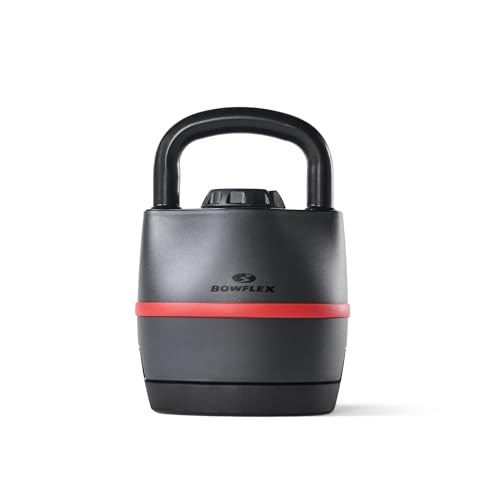Introduction
You’ve spent a lifetime taking care of others—now it’s time to take care of yourself. Maybe your body doesn’t move like it used to. Maybe confidence has faded quietly over the years. But here’s the truth: strength, energy, and self-belief don’t have an age limit.
Kettlebell training isn’t just about lifting weight. It’s about lifting yourself up—one swing, one step, one session at a time. Whether you’re 60, 70, or beyond, you can build a body that feels strong and a mind that feels alive. This article will show you how kettlebells can help you reconnect with your power, boost your confidence, and maybe even surprise yourself.
The Physical Benefits of Kettlebell Training
Improved Strength and Endurance
Kettlebells are unique fitness tools that allow for a wide range of movements that can enhance strength and endurance. Here’s how:
- Full-body workouts: Kettlebell exercises often engage multiple muscle groups, leading to improved overall strength.
- Functional fitness: Movements like swings, squats, and presses mimic everyday activities, making daily tasks easier and safer.
- Increased endurance: Kettlebell training can elevate heart rates, improving cardiovascular health and stamina.
These physical improvements not only aid in daily living but also contribute to a sense of achievement and competence.
Enhanced Mobility and Flexibility
As we age, maintaining mobility and flexibility is critical to independence. Kettlebell training encourages:
- Joint stability: Many kettlebell exercises promote balance and stability in the joints.
- Increased range of motion: Exercises that incorporate dynamic movements can help maintain and improve flexibility.
- Reduced risk of injury: Stronger, more flexible bodies are less prone to injuries, increasing confidence in physical capabilities.
Weight Management
Regular kettlebell workouts can aid in weight management:
- Caloric burn: Kettlebell exercises can burn a significant number of calories in a short amount of time.
- Muscle building: Increased muscle mass leads to a higher resting metabolic rate, aiding in weight management.
Maintaining a healthy weight contributes to improved self-image and confidence.
The Mental Empowerment of Kettlebell Training
Overcoming Challenges
Kettlebell training often involves tackling new challenges, which can enhance mental resilience:
- Goal setting: Setting and achieving fitness goals can foster a sense of accomplishment.
- Skill development: Learning proper techniques and progressing to more advanced movements can build confidence in one’s abilities.
Boosting Mental Health
Engaging in regular physical activity is known to improve mental health:
- Release of endorphins: Exercise boosts endorphins, which can enhance mood and reduce feelings of anxiety and depression.
- Mindfulness: Focusing on form and technique during kettlebell workouts can promote mindfulness, reducing stress and enhancing mental clarity.
Building Self-Esteem
As individuals notice improvements in strength and fitness:
- Positive body image: Increased strength and endurance can lead to a more positive perception of oneself.
- Social comparison: Watching peers succeed in their kettlebell journeys can inspire individuals, reinforcing their self-belief.
Confidence Starts with the Right Tools – Kettlebell Gear for 60+
Feel Strong, Train Smart
Kettlebells can do more than build muscle—they build confidence. These beginner-friendly tools support safe movement, consistent practice, and a strong sense of self in your 60s and beyond.
Benefits:
- Easy to use and joint-friendly
- Encourages independence and progress
- Supports strength and balance gains
Community and Social Connections
Group Classes
Participating in kettlebell classes offers social engagement:
- Supportive environments: Group classes foster a sense of camaraderie, making it easier to stay motivated.
- Shared experiences: Exercising with others who share similar goals can enhance the overall experience and create lasting friendships.
Building a Network
Connecting with like-minded individuals through kettlebell training allows for:
- Encouragement: A supportive community can celebrate victories, big and small.
- Shared knowledge: Learning from others’ experiences can provide insight and tips for improvement.
Overcoming Age Barriers
Kettlebell training can challenge societal perceptions of aging:
- Inspiring others: Older adults successfully engaging in kettlebell workouts can serve as role models, encouraging peers to pursue their fitness journeys.
- Creating new narratives: As individuals over 60 become stronger and healthier, they can reshape the narrative around aging and fitness.
Practical Tips for Getting Started with Kettlebells
Choosing the Right Kettlebell
When starting kettlebell training, it’s important to select the right equipment:
- Weight selection: Beginners should start with a lighter kettlebell (10-15 lbs) and gradually increase the weight as strength develops.
- Shape and grip: Ensure the kettlebell has a comfortable handle for a secure grip.
Learning Proper Techniques
To prevent injury and maximize benefits, it’s crucial to learn correct techniques:
- Consider professional instruction: Engaging a certified trainer can provide personalized guidance and ensure proper form.
- Utilize online resources: There are numerous online tutorials and videos available for beginners.
Establishing a Routine
Creating a consistent workout schedule is essential:
- Set realistic goals: Start with 2-3 sessions per week and gradually increase frequency.
- Incorporate variety: Mix kettlebell workouts with other forms of exercise for a balanced fitness routine.
Conclusion
Kettlebell training offers numerous benefits for individuals over 60, from physical strength and endurance to enhanced mental well-being and social connections. By overcoming physical challenges and engaging with a supportive community, older adults can significantly boost their confidence, reshape their narratives about aging, and embrace a vibrant, active lifestyle. With the right approach, kettlebell training can become a powerful tool in fostering a sense of empowerment and self-worth for seniors. The journey may be challenging, but the rewards are abundant—proving that age is just a number when it comes to strength, health, and confidence.









